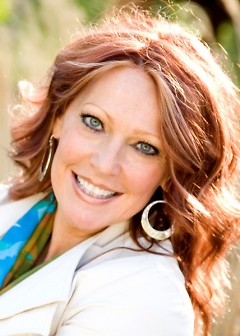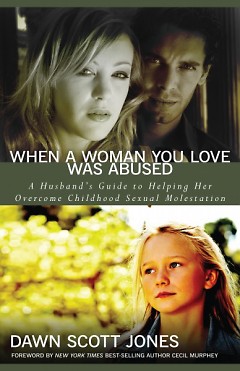Give readers a one-sentence description of your book, When a Woman You Love Was Abused. My book is a guide for husbands to help them understand and then be able to help their wives who have experienced childhood sexual abuse; it’s also for wives, who find it helpful in talking to their husbands about what happened to them.
Where did the idea for this book originate? This book was birthed out of my own childhood sexual abuse, and finding there was a massive wall between my first husband and me when it came to trust and intimacy issues and how we related. At first I didn’t connect the dots. Seven years into my first marriage I started to discover the connection between my childhood abuse and our marriage issues.
I started working on finding some healing, and the more I healed the more passionate I became about helping women in this and other areas. As women opened up to me about their abuse and how their marriages were suffering, my burden began to be that if I could talk to the guys who love these women, I could explain what was going on with their wives.
How did you get it published? I attended the Breathe Christian Writers Conference in 2010 where I met Cecil Murphey, a writer. He had written the book “When a Man You Love Was Abused,” published by Kregel, based here in Grand Rapids. I connected with Kregel through Cecil, and Kregel ended up publishing my book.
How did writing this book change you? I wrote every stinking, grueling word myself. It was very healing but it was not easy. I felt such a sense of accomplishment, not just in writing the book but in being able to trace my steps to see how far I had come. I thanked God for the healing and the awareness that healing is a process. I was finishing the writing when I began dating my husband Paul. It wasn’t the best conversation starter for a dating couple, but I knew I needed to tell him. My telling him about the abuse didn’t keep us from bonding; it brought us closer together.
What do you want readers to take away from your book? I want readers to have hope, and I want them empowered with the knowledge that “the truth will set you free.” You can stop the insanity by learning which behaviors are triggering her issues. At the very least, a husband can understand what’s happening and know that it’s not him. I want a husband to feel supported; he is the second victim of sexual abuse and he needs to be championed and understood. Understanding is the first part; the next step is asking what we’ll do now with what we know.
The Rapidian, a program of the 501(c)3 nonprofit Community Media Center, relies on the community’s support to help cover the cost of training reporters and publishing content.
We need your help.
If each of our readers and content creators who values this community platform help support its creation and maintenance, The Rapidian can continue to educate and facilitate a conversation around issues for years to come.
Please support The Rapidian and make a contribution today.


